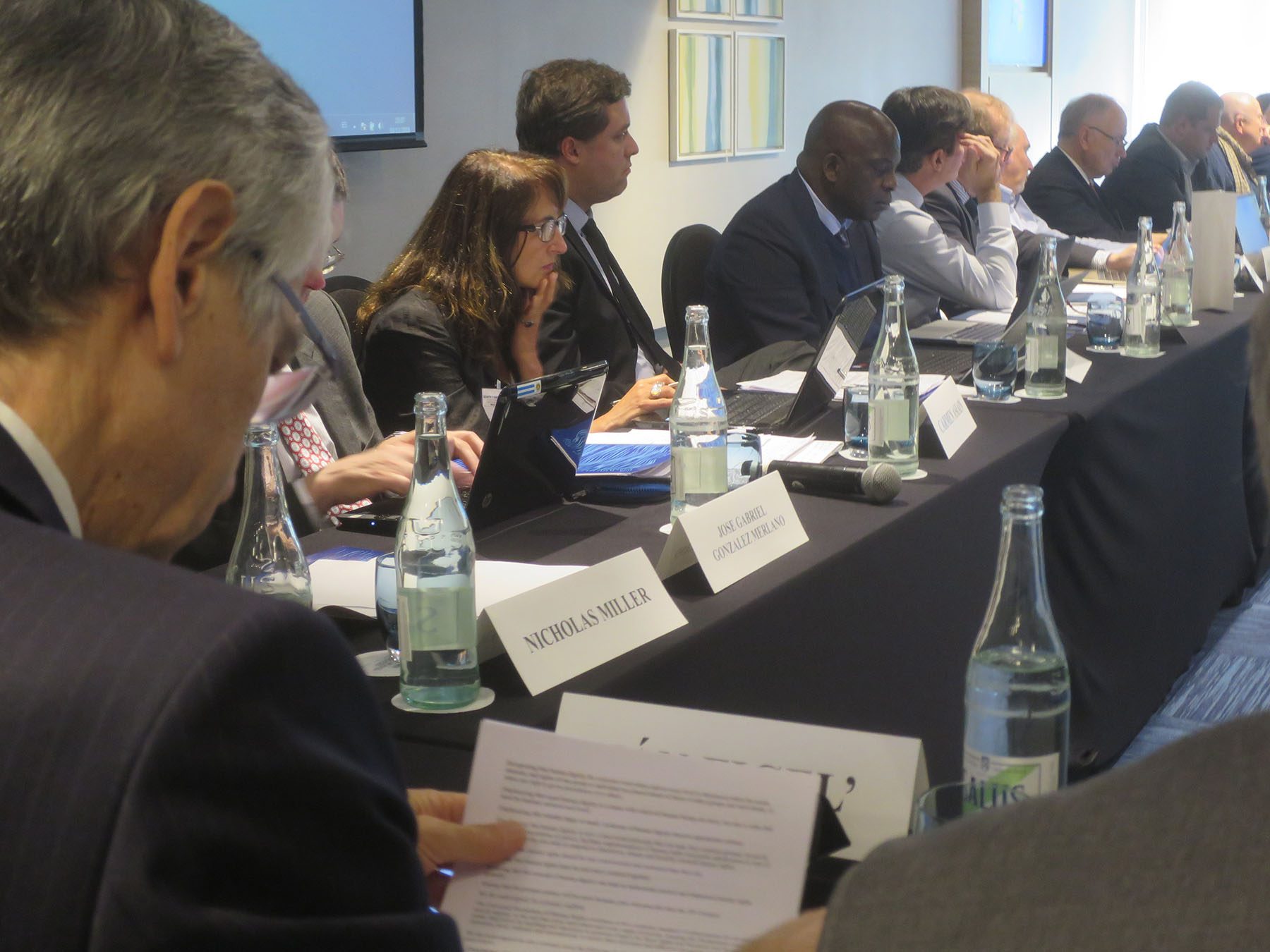Punta del Este Conference: Human Dignity for Everyone Everywhere

In commemoration of the 70th anniversary of the Universal Declaration of Human Rights, International Center for Law and Religion Studies Director Brett Scharffs, Founding Director Cole Durham, Associate Director Gary Doxey, and International Advisory Council Chair David Colton — under the auspices of the European Academy of Religion, with the leadership of Ján Figel’, Special Envoy for Freedom of Religion or Belief Outside the European Union, and with co-conveners Carmen Asiaín Pereira, Heiner Bielefeldt, Tahir Mahmood, Alberto Melloni, Dicky Sofjan, Renáta Uitz, and Robin Fretwell Willson — assembled an international group of scholars and human rights experts in Punta del Este, Uruguay, 2-4 December 2018, to prepare the Punta Del Este Declaration on Human Dignity for Everyone Everywhere.
In connection with the conference a website was developed to support the event and provide resources for ongoing efforts to realize the conference objectives. At the conclusion of the event, the conveners issued the following Press Release:

PUNTA DEL ESTE, URUGUAY, December 5, 2018. Prominent experts and government leaders specializing in human rights and constitutional law from around the world gathered in Punta del Este from December 2-4 to remember, reaffirm and recommit the world to human dignity as the foundational principle of human rights by issuing the Punta del Este Declaration on Human Dignity for Everyone Everywhere. The conference commemorated the seventieth anniversary of the adoption of the Universal Declaration of Human Rights by the United Nations General Assembly on December 10, 1948. The purpose of the Declaration is to broaden support of human rights and to emphasize their universal and reciprocal character.
Ján Figeľ, Special Envoy for promotion of Freedom of Religion or Belief outside the European Union and a driving force behind the initiative, stated, “Despite the achievements of the landmark document that the UDHR is, it is clear that we need a positive change to the human rights climate. The Declaration is an active step to trigger this transformation.” He views the Declaration as an invitation to the global community for an enriched conversation about the dignity of each person.
Article 1 of the Declaration affirms that the inherent dignity of all people and that respecting, promoting and protecting human dignity for everyone everywhere is the foundational principle, criterion and the key objective of human rights. The Declaration also states, “Dignity is an essential part of what it means to be human.”
Discussing the Declaration, Brett G. Scharffs, Professor of Law and Director of the International Center for Law and Religion Studies, observed, “We live in the world where human rights are too politicized and not widely enough viewed as being truly universal. The Declaration aims to address this issue by emphasizing the many ways that human dignity is a useful concept.”
Professor Scharffs added, “The Declaration identifies numerous ways that the concept of dignity is powerful, such as in defining and specifying human rights, emphasizing both rights and duties, advancing human rights education, seeking common ground in resolving competing human rights claims, and as a guiding principle in legislation and adjudication.”
Carmen Asiaín Pereira, Professor of Law and Religion at the University of Montevideo and Alternate Senator at the Parliament of Uruguay, welcomed the participants to the country and praised the efforts and accomplishments of the conference as a timely and significant contribution to strategies on implementation of human rights.
W. Cole Durham, Jr., Professor of Law and Founding Director of the International Center for Law and Religion Studies, said “The Punta del Este conference has brought together a remarkable and diverse group of legal and policy thinkers committed to tapping the aspirational potential of the concept of human dignity.”
The Punta del Este Declaration also recognizes that just as the principle of human dignity for everyone everywhere was the key idea that helped generate agreement that made the UDHR possible in the aftermath of World War II, so today it remains a vital tool for building common understanding about human rights. In this regard, the Declaration emphasizes that the universal and reciprocal character of human dignity is a corrective to positions claiming that dignity supports rights for some but not for others.
The Declaration further emphasizes that focusing on human dignity for all also “helps to defuse the hostility that is often associated with human rights controversies and to foster constructive dialogue.”
The Conference participants agreed that human dignity provides a basis for a common starting point for discussions on human rights and a bridge when those rights appear to be in conflict. Silvio Ferrari, Emeritus Professor of Canon Law at the University of Milan and Founder and Honorary Lifetime President of the International Consortium for Law and Religion Studies, explained, “We cannot speak of human rights without referring to human dignity. A dynamic, open and comprehensive notion of human dignity is the condition for overcoming differences and building a consensus on a context-sensitive implementation of the universal human rights.”
The Punta del Este Declaration is the culmination of several preliminary events on human dignity held over the course of the year, including at Central European University in Budapest, at Oxford University, and at the 25th Annual Law and Religion Symposium at Brigham Young University in Provo, Utah.
Conference delegates plan to introduce the Declaration to a wide range of government, parliament, civil society, religious and academic groups with the aim of achieving a broad consensus about the centrality of human dignity. Over the next year, conference participants will engage in several initiatives at global, regional, and national levels to present and discuss the Declaration and re-energize the commitment to human rights by way of reinforcing the inherent and inalienable human dignity for everyone everywhere.